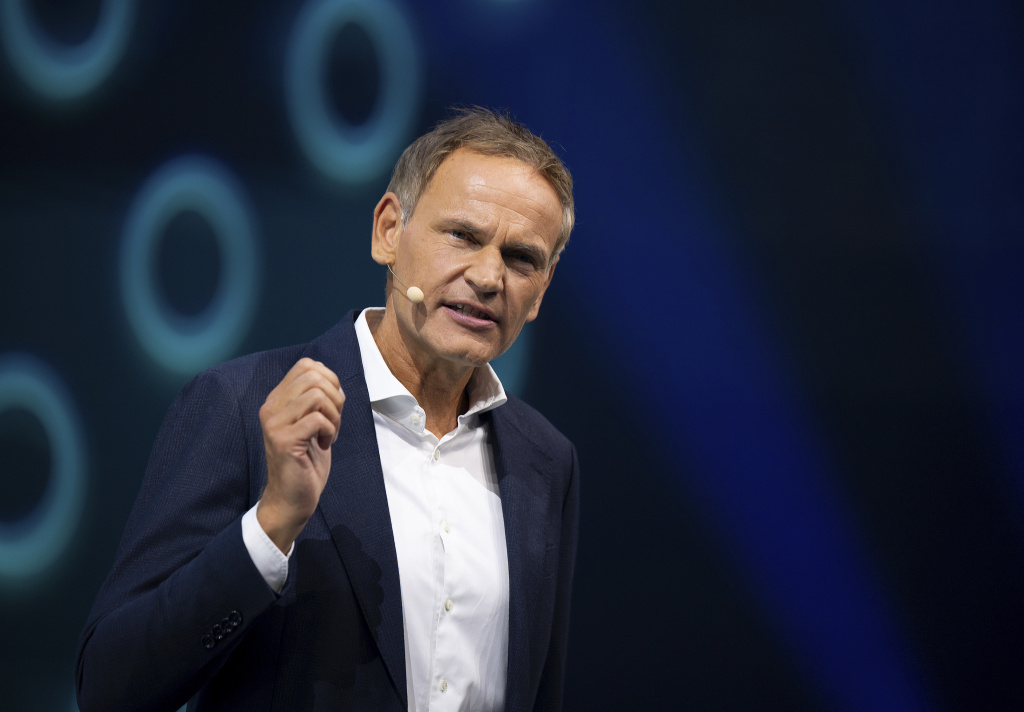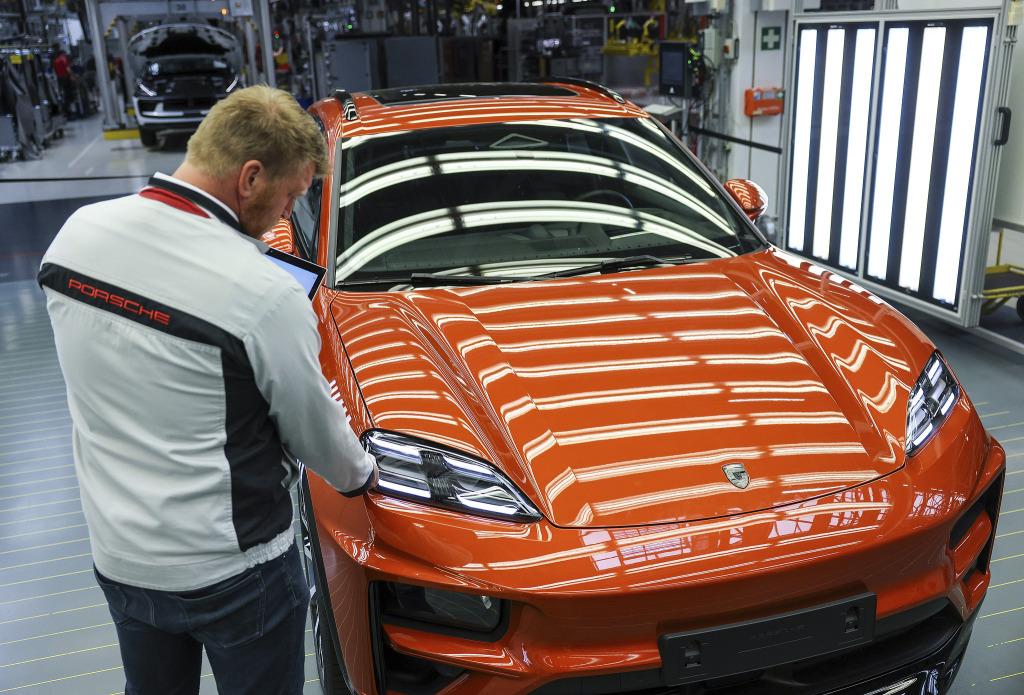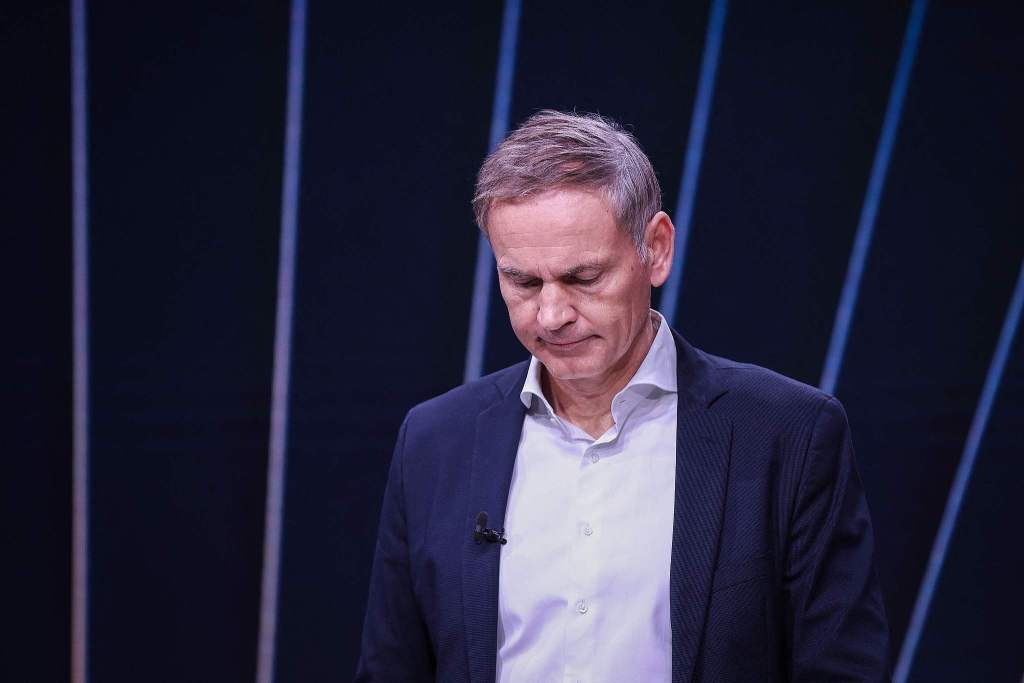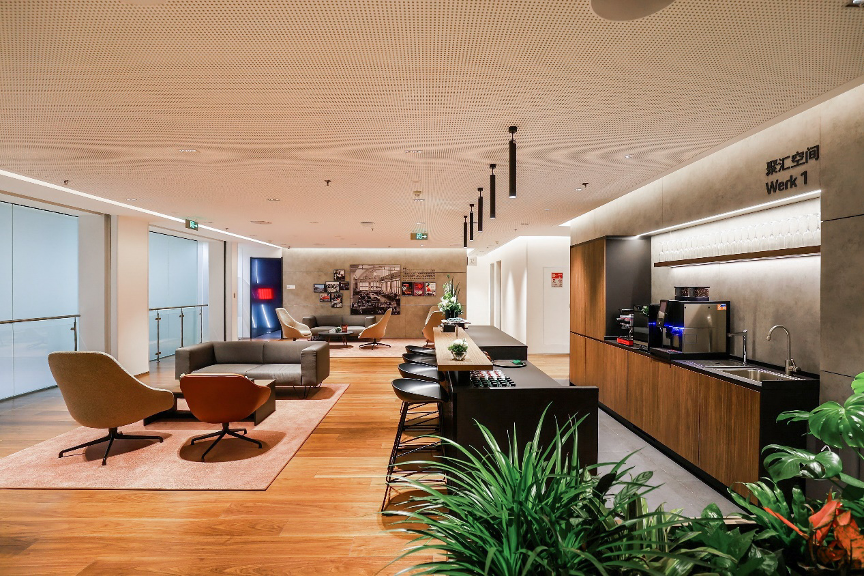
Porsche recently revealed that Oliver Blume's three-year dual leadership tenure is coming to an end. As the dual-chairman of Volkswagen Group and Porsche, Blume struggled to balance the interests of both giants during a crucial period of transformation in the automotive industry, with Porsche facing difficulties in both the Chinese and American markets. The leadership change is the result of a complex mix of identity conflict, performance pressures, and strategic uncertainty.

Oliver Blume, Chairman of the Board of Management of Volkswagen Group, attended a press conference before the opening of the International Automotive and Smart Mobility Expo (IAA Mobility) in Munich, Germany, on September 7, 2025. (Photo by Visual China)
Dual identity dilemma
In September 2022, Blume reached the pinnacle of his career. He succeeded Diess as CEO of Volkswagen Group while continuing to serve as Chairman of the Porsche Management Board. This coincided with Porsche's launch into the capital markets as an independent company. This dual-role arrangement posed governance risks from the outset. Investors worried that the strategic priorities and resource allocations of the two listed companies would inevitably clash, and the complex challenges of the automotive industry's "structural crisis" were too complex for a single person to manage.
Doubts continued to ferment over the past two years and escalated with specific incidents.
In November 2023, the German trade union IG Metall was the first to publicly criticize the company. In an interview with Handelsblatt, its chairman, Jörg Hofmann, explicitly asked Blume to give up his dual positions, saying bluntly that "Volkswagen Group's electrification transformation and Porsche's luxury brand maintenance require completely different decision-making rhythms. The distraction has led to delays in the approval of key projects."
In March 2024, Volkswagen's preferred shareholder Deka Investment directly questioned at the annual shareholders' meeting: "How can he properly handle the work of two positions at the same time? In 2023 alone, the development of Volkswagen Group's SSP pure electric platform and Porsche's pure electric Macan project were delayed due to resource competition." It also jointly submitted a proposal with other shareholders to "split the dual positions." Although it was not passed, it caused widespread heated discussion in the market.
Despite Blume's leadership in Porsche's independent IPO in December 2022 and the launch of a multi-billion euro cost-cutting program in 2023, the controversy over governance has remained elusive. In September 2024, the Volkswagen Group Supervisory Board publicly acknowledged for the first time at its quarterly meeting that the dual leadership model presents efficiency deficiencies.
Performance differentiation
During Blume's tenure, Porsche's performance exhibited a rare dichotomy. Globally, the brand set a record of 310,700 vehicle deliveries in 2024, with all four major sales regions, excluding China, achieving new highs. North America, with 86,500 vehicles sold, leaped to first place globally. Financially, operating revenue in 2024 declined slightly by 1% to €40.1 billion, while net cash flow from the automotive business approached €3.7 billion, demonstrating considerable profitability.
However, the decline of the Chinese market has become an unavoidable problem. This core market, which once contributed 30% of global sales, saw deliveries fall 15% year-on-year in 2023, and then by 2024, the decline widened to 28%, to just 56,900 vehicles, dropping from the world's largest single market to third place.
In the first three quarters of 2025, Porsche's cumulative sales in China reached 32,195 vehicles, a year-on-year decrease of 26%.
The market downturn directly impacted profits. In the third quarter of 2025, the profit statement showed a loss of €1.8 billion. For reference, just two years earlier, in 2023, Porsche's full-year operating profit was a staggering €7.3 billion.
To improve performance, Porsche has taken a series of actions. In 2024, the company announced that it would cut 5% of its workforce, or about 1,900 people, through "organizational structure optimization," which was described as a "voluntary separation program" and "natural attrition."
On the channel side, in 2024, in order to meet sales targets, Porsche China pressed dealers to stock up, resulting in a single-store inventory coefficient of 4.2, far exceeding the industry warning line of 1.5, triggering collective protests from more than 40 dealers across the country.
Faced with the downturn, Blume declared in an interview with foreign media at the Shanghai Auto Show on April 28, 2025 that "Porsche does not care about sales, but cares more about price levels", and denied any competition with Chinese brands such as Xiaomi, saying that the latter "lack driving capabilities and are in the low-price market."
Some believe this represents a misjudgment of consumer trends in the Chinese market. Young consumers have already incorporated technological experiences like smart cockpits and autonomous driving into their definition of luxury, while Porsche remains wedded to its traditional mechanical advantages.
Motorized swing
Early in Blume's tenure, Porsche announced at an investor conference in November 2022 the goal of having "pure electric vehicles account for over 80% of its fleet by 2030," planning to launch models like the all-electric Macan and 718, and disclosing the development progress of its PPE all-electric platform. However, this blueprint has been scaled back under market pressure, and its execution has been plagued by confusion.
The all-electric Macan's launch in 2024 suffered a series of setbacks. Five years in development, this model's insistence on using a custom ZF motor, which required a separate mold, delayed mass production by 18 months. Furthermore, doubts about battery cycle test data led to a crisis of confidence, ultimately delaying its original April 2024 launch until pre-sales began in 2025.

On May 6, 2024, local time, in Saxony, Germany, a Porsche employee inspected an all-electric Porsche Macan at the quality control center of the Leipzig plant. Visual China Photo
In 2024, global deliveries of the flagship all-electric Taycan plummeted 49% to 20,800 units, making it Porsche's worst-selling model. In the first half of 2025, global deliveries of the model were 8,302 units, continuing the slump.
Signals of a strategic shift began to emerge in early 2025. In January, Porsche suddenly changed its tune, announcing that the "fuel-powered Macan will continue to be sold," overturning its previous promise of "full electrification of the Macan," and at the same time disclosed that it would invest 800 million euros to upgrade internal combustion engine technology.
In September, Porsche officially announced a strategic adjustment: postponing the launch of models such as the pure electric 718, adding brand-specific internal combustion engine models, and extending the life cycle of fuel vehicles to 2030, which is in sharp contrast to the original electrification goal.
The most direct manifestation of the strategic swing was the "stop selling electric vehicles" controversy that broke out during the 2025 Shanghai Auto Show.
On April 28, 2025, Blume stated in an interview with foreign media at the Shanghai Auto Show that the company may cease selling electric vehicles in China within the next two to three years. He cited Porsche's relatively low electric vehicle sales in China, which have declined for three consecutive years, as the reason. Blume also emphasized that the company would maintain its premium pricing strategy and that the price of the new Cayenne EV would not be reduced. This statement quickly attracted market attention, with multiple media outlets reporting on the company's plans to withdraw from the Chinese electric vehicle market.

On April 22, 2025, on the eve of the 21st Shanghai Auto Show, Volkswagen Media Night was held, and Volkswagen Chairman of the Board of Management Oliver Blume spoke. Volkswagen announced that it will launch a series of new products in 2025. Visual China Photo
Just 12 hours later, a reversal occurred. On the morning of April 29th, Porsche China issued an urgent response through official channels, explicitly stating that the relevant news was a misinterpretation. It emphasized that Porsche will continue to unwaveringly advance its electrification efforts in China and will accelerate the provision of local digital solutions for its products. It also revealed that its next all-electric model will be the all-new Cayenne, scheduled for launch in 2026. That afternoon, the head of Porsche China further clarified at a media conference that the Chinese market is at the core of our electrification strategy. There are no plans to discontinue sales, and the headquarters' statement is a misinterpretation of the 'optimization of the product matrix.'
at last
Volkswagen Group's pursuit of scale conflicts with Porsche's luxury brand characteristics, China's electrification wave deviates from global market demand, and the overstretched governance structure is destined to find it difficult to form a unified strategy. The "blunder" at the Shanghai Auto Show is clearly an outbreak of this internal contradiction.
For incoming CEO Michael Leites, his key task will likely be to "focus." He needs to re-anchor his strategic positioning in the Chinese market and avoid the awkward cycle of headquarters making decisions and local firefighting. This leadership change isn't the end of Porsche's transformation, but rather a new starting point for Porsche to rediscover its balance between luxury and intelligence, and global and domestic.


